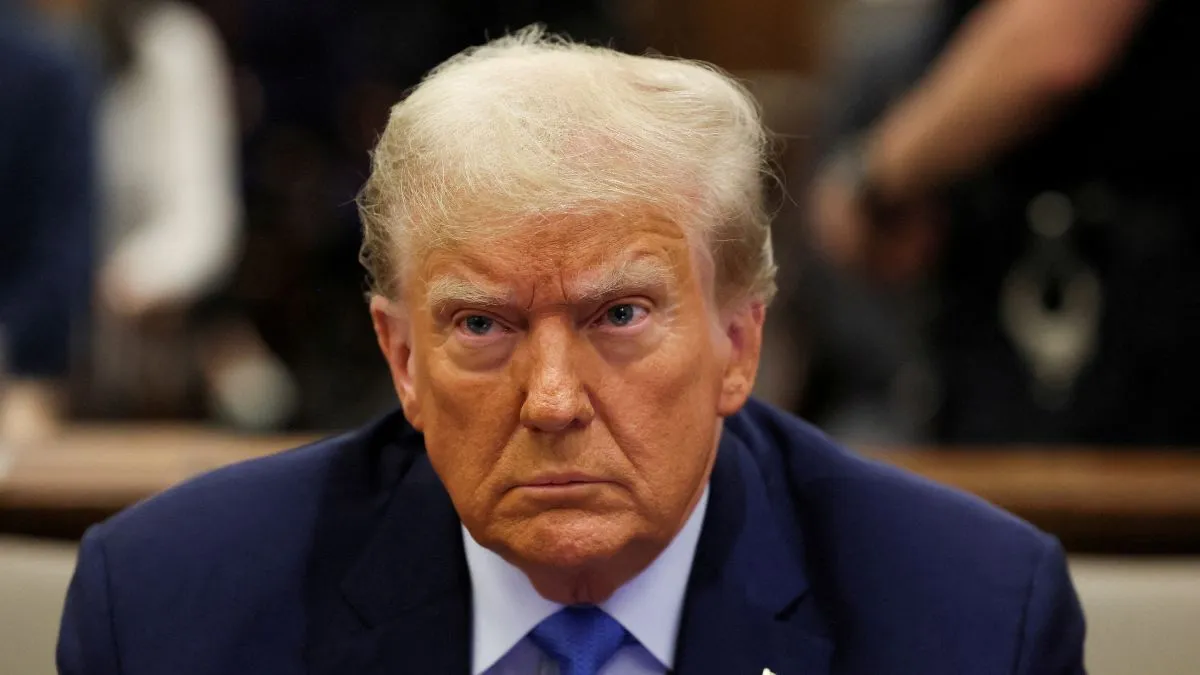- By Shivangi Sharma
- Mon, 24 Mar 2025 11:37 PM (IST)
- Source:JND
US President Donald Trump has announced a 25 per cent tariff on countries purchasing oil and gas from Venezuela, raising concerns over global trade relations. The move, revealed on Trump's social media platform Truth Social, is set to take effect on April 2, 2025. This decision comes amidst ongoing tensions with Venezuela and as part of Trump's aggressive trade and immigration policies.
Trump cited Venezuela's alleged hostility toward the US as a key reason for the tariff. He specifically pointed to the presence of the Tren de Aragua gang, which the US has accused of criminal activities and using illegal migration routes. The Trump administration has initiated a deportation campaign against Venezuelan migrants it believes are linked to the gang.
Additionally, Trump highlighted that countries like China, Venezuela's largest oil buyer, would face increased economic pressure. The US has already imposed a 20 per cent tariff on Chinese imports to combat fentanyl trafficking.
President Donald J. Trump announced today that the United States of America will be putting what is known as a Secondary Tariff on the Country of Venezuela, for numerous reasons, including the fact that Venezuela has purposefully and deceitfully sent to the United States,…
— Donald J. Trump Posts From His Truth Social (@TrumpDailyPosts) March 24, 2025
Impact on Global Oil Trade
In 2023, China purchased approximately 68 per cent of Venezuela's oil exports. Other significant buyers include Spain, Russia, Singapore, and Vietnam. The introduction of the new tariff may force these nations to reconsider their energy-sourcing strategies or bear additional trade costs.
According to the US Census Bureau, Venezuela exported 8.6 million barrels of oil to the US in January 2024. However, the new tariff may further limit these exports and drive Venezuela to strengthen its trade ties with other nations.
Will India Be Affected?
India, one of the world's largest oil importers, is a notable buyer of Venezuelan crude. In December 2023, India imported around 191,600 barrels per day (bpd) from Venezuela. Reliance Industries accounted for the majority, receiving approximately 127,000 bpd. Other Indian companies such as Indian Oil Corporation (IOC) and HPCL-Mittal Energy imported 37,000 bpd and 28,000 bpd, respectively.
India's Venezuelan oil imports surged to over 254,000 bpd in January 2024, making up nearly half of Venezuela's total oil exports. However, with the 25 per cent tariff in place, Indian companies could face significant financial strain if they maintain their current level of imports.
Possible Reactions From India
India has traditionally balanced its oil imports by diversifying suppliers to reduce dependency on any single country. While the tariff may pose a challenge, India may explore increased imports from alternative sources like Russia, the Middle East, or Africa. Additionally, diplomatic negotiations could play a role in securing exemptions or renegotiating trade terms.

